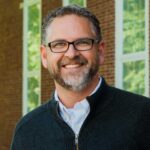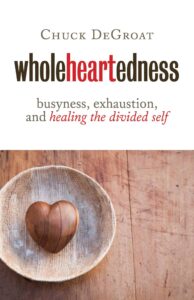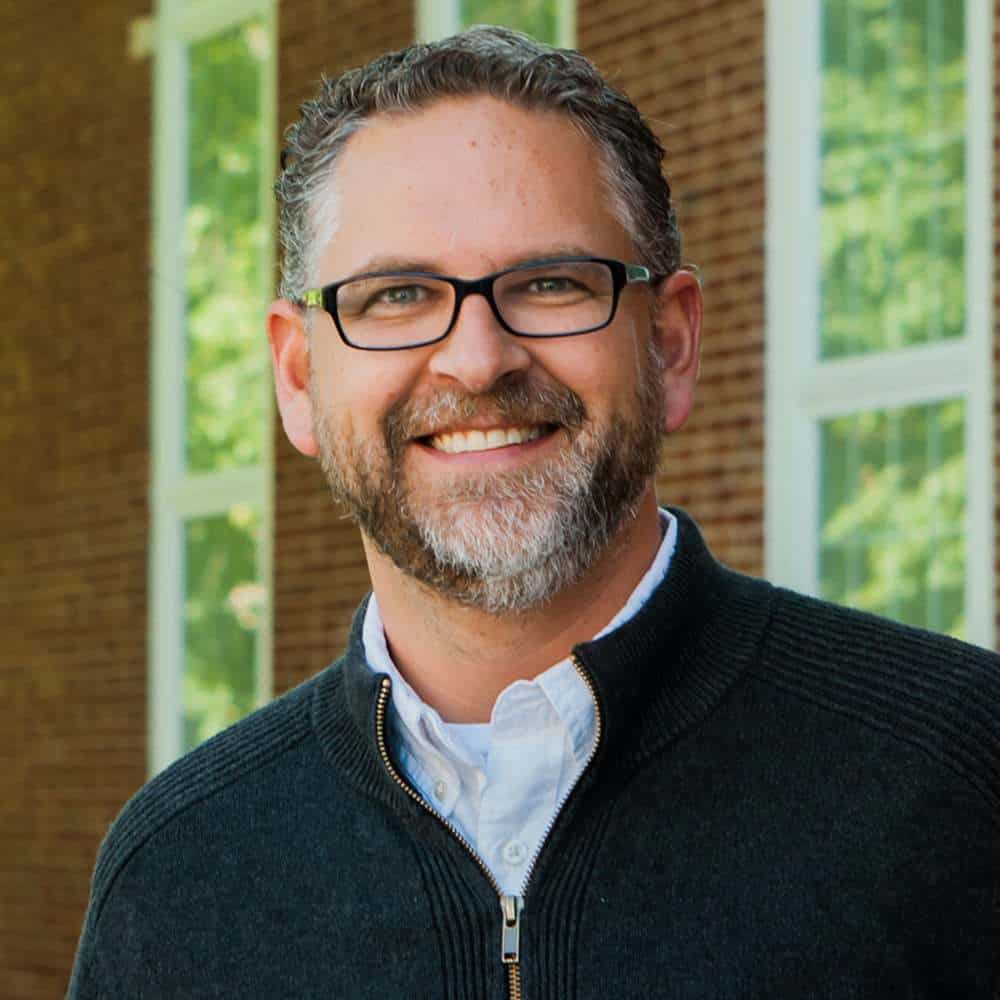 Just this month Chuck DeGroat, Associate Professor of Pastoral Care and Counseling & Senior Fellow of the Newbigin House of Studies at Western Theological Seminary, came out with his book Wholeheartedness: Busyness, Exhaustion, and Healing the Divided Self
Just this month Chuck DeGroat, Associate Professor of Pastoral Care and Counseling & Senior Fellow of the Newbigin House of Studies at Western Theological Seminary, came out with his book Wholeheartedness: Busyness, Exhaustion, and Healing the Divided Self. So, we metaphorically sat with him and ask him a few questions about it:
1. What question are you trying to explore in this new book?
In my work, I continually hear people say, “I feel like I’m being pulled in a thousand directions” or “I feel scattered.” Around this is a pervasive sense of busyness, exhaustion, anxiety and a significant existential question – Am I enough? My aim was to address this universal phenomenon with an examination of our longing for wholeheartedness – an undivided life. And so, in this new book I call upon poets and psychologists, sociologists and theologians, neurobiologists and mystics to help me address our lack of wholeheartedness, our hope for wholeheartedness, and our pathway to wholeheartedness.
2. What drew you to the topic of wholeheartedness?
What I’d love to say is that I’ve been fascinated by the complex psyche of Pete Enns for years and wanted to figure him out. But he is a lifelong Yankees fan, as am I, and so he is the embodiment of wholeheartedness. Reality is, I’m busy, I’m tired, my life feels scattered. I’m an ordained minister, I’ve got a clinical counseling degree and a PhD in psychology and I am still plagued by my own inner divisions. Clearly you can’t acquire or achieve wholeheartedness. Much of what I’ve learned about it is from failing at it – in dark moments when I wondered if I’d come apart at the seams, in times when I’d get praise but still feel like I wasn’t quite enough. Wholeheartedness offers a lot of good thinking from wise social scientists and biblical scholars, but it is also an archaeological dig of my own soul. It’s the product of a contemplative journey, a therapeutic journey, a liturgical journey. I bring together many different strands to examine wholeheartedness and offer a pathway to it.
3. What are a 2-3 parts of the book you’re most excited about?

I will tell you what resonates with people I talk to, particularly when I’m out at churches or conferences offering this material. The first is the question – Am I enough? We live in a scarcity culture. We’re not sure if we’re pretty enough, financially secure enough, relevant enough. I’ve had 50 year old CEO’s say that they feel this question deep in their bones, as well as stay-at-home Mom’s, veteran pastors, bus drivers, and wealthy Silicon Valley software developers. I’m also very excited about bringing important poetic voices into this conversation, though I wasn’t excited to find out that I had to pay poetry permissions to get their voices in there. (Pete, do you have $2000 I can borrow?) The poets I include have been companions on my journey, and they put words around our complexity in a way that I cannot. Finally, I think that I’m just as excited as readers are about the final three chapters which offer a kind of contemplative-psychological-liturgical pathway to wholeheartedness. I hope that is provocative enough to get folks to read through to the end!
4. You would consider yourself Reformed in your theology. How does this book on wholeheartedness fit that framework?
I define wholeheartedness as oneness and worthiness in Christ. I believe that this is deeply Christian and “Reformed” definition. Oneness – we’re made in and for union and communion. Our divided hearts seek love in places that disappoint, but real union is available not merely as a theological concept but as a relational reality. The well-known 20th century Reformed theologian John Murray jumped on the back of John Calvin when he wrote: “Union with Christ is the central truth of the whole doctrine of salvation.” Yes! But how is that worked out in real lives? Read the book. Second, worthiness. Whenever I talk about our worthiness, Reformed folks begin to panic. We have this love affair with feeling bad about ourselves. This couldn’t be further from a Reformed view of sin. Sin reminds us that we’ve blown it, that we’re guilty, not that we’re unworthy to our core. It’s precisely because God bestows to us dignity and worthiness that he pursues us to the ends of the earth, to hell and back. John Calvin once imagined walking down the street and seeing someone (who isn’t a Christian) in a place of pain and need. He wrote, “but look to the image of God in them, an image which, covering and obliterating their faults, should by its beauty and dignity allure us to love and embrace them.” And then, in a wink in the direction of many today involved in the important work of social justice, he writes, “the image of God, which recommends him to you, is worthy of your giving yourself and all your possessions.” I’m Reformed because I think this tradition takes human brokenness very seriously, but because it also takes God’s generosity very seriously. God’s vision for wholehearted lives of flourishing animates this work.
5. Who are you trying to reach with this book?
I can see this book being used in a wide variety of settings – by solo readers engaging a more intentional journey to oneness and worthiness, by small groups (check out my “Reader’s Guide” here), in a college or seminary classroom, by therapists and caregivers. I could see it being read by leaders looking to cultivate flourishing in their teams. I should say – I identify as a Christian, but I wrote it as a conversation starter for skeptics, as well. Some of my best friends don’t identify as Christians, and I conversed with them through the process. I think that all of us experience shame and division – it’s a universal human phenomenon. Skeptics see our divisions with a zoom lens in our polarized theological debates and our hypocritical lives. And so, I’d hope that skeptics and Christians alike who long to flourish in a messed up world would allow this book to create (dare I say) wholehearted conversations for the sake of wholehearted lives.

